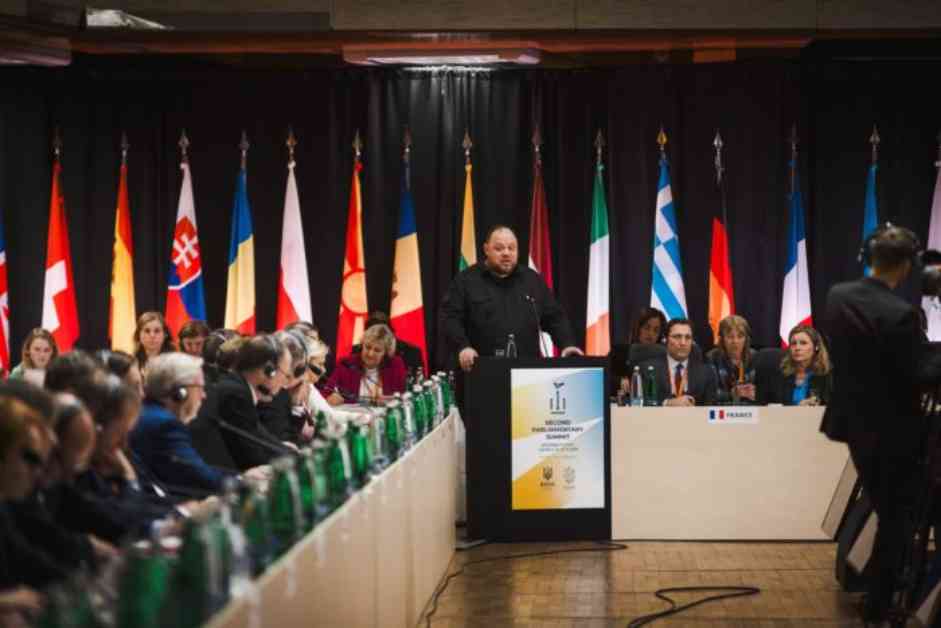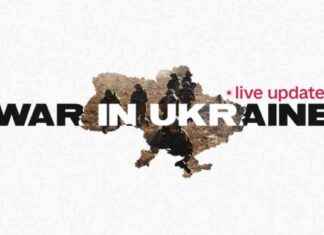Ukraine’s Push for Fair Mineral Deal and Security Guarantees with the US
Starting next week, the Ukrainian government, under the leadership of Speaker of the Ukrainian Parliament Ruslan Stefanchuk, is set to engage in crucial discussions with the administration of US President Donald Trump. The focus of these talks will revolve around a potential deal concerning rare earth minerals and security guarantees, as reported by NHK.
Recent tensions between the US and Ukraine stem from President Trump’s controversial remarks, labeling Ukrainian leader Volodymyr Zelenskyy as a “dictator without elections.” Allegations were also made regarding Ukraine’s involvement in the conflict with Russia, following discussions between Trump and Russian officials in Saudi Arabia. The rift further widened due to Ukraine’s refusal to sign a lucrative rare minerals investment agreement proposed by the US. Zelenskyy cited the lack of substantial financial support, absence of security assurances, and unfavorable terms as key reasons for rejecting the deal.
In response to these developments, Speaker Stefanchuk announced the formation of a specialized government task force that will commence work on the rare earth mineral agreement from February 24th onwards. Emphasizing Ukraine’s willingness to collaborate with international partners, Stefanchuk underscored the critical need for specific security guarantees to shield the nation from potential threats posed by Russia.
Furthermore, Stefanchuk expressed Ukraine’s intentions to engage in productive dialogues and expressed a desire to convene a summit with US representatives at the earliest opportunity.
Addressing President Trump’s stance on the necessity of elections in Ukraine, Stefanchuk highlighted the legal constraints within the country that prohibit elections during martial law. He also shed light on the challenges of conducting fair elections amidst a state of war, especially when military personnel are unable to participate.
Stefanchuk’s firm stance on the conflict resolution with Russia was evident as he articulated the conditions for peace – the withdrawal of Russian forces from Ukrainian territory, the restoration of occupied areas, and the accountability of Russia through reparations for the damages caused during the war.
In a similar vein, Ukrainian deputy Yehor Cherniev, who leads Ukraine’s delegation to the NATO Parliamentary Assembly, reiterated Ukraine’s openness to negotiations. However, he emphasized the importance of a fair and mutually beneficial agreement for Ukraine’s interests to be upheld.
Cherniev expressed dismay over the perceived colonial treatment of Ukraine in the negotiations, stating, “We have been a loyal friend and ally of the US for many years, and the attitude toward us as a colony or an enemy on whom reparations are imposed is offensive and incomprehensible to us.”
Ukraine has consistently underscored that their security guarantees are not merely charitable gestures but integral to NATO’s broader security framework.
### Ukraine’s Stance on Fair Mineral Deal and Security
As Ukraine navigates complex diplomatic negotiations with the US, the country’s unwavering commitment to securing fair terms in the rare earth mineral deal and obtaining essential security guarantees remains at the forefront. The evolving dynamics of this dialogue reflect Ukraine’s strategic priorities in safeguarding its interests while fostering international partnerships.
### The Road Ahead: Challenges and Opportunities
Moving forward, Ukraine faces the dual challenge of balancing its economic interests with national security imperatives. The delicate interplay between resource agreements and security assurances underscores the high stakes involved in these negotiations, highlighting the need for a nuanced and comprehensive approach to address multifaceted concerns.
The journey towards a mutually beneficial resolution requires a delicate dance of diplomacy, underscored by Ukraine’s steadfast resolve to uphold its sovereignty and protect its citizens from external threats. As the dialogue unfolds, the global community watches with bated breath, awaiting the outcome of these critical discussions that hold far-reaching implications for regional stability and international relations.

















